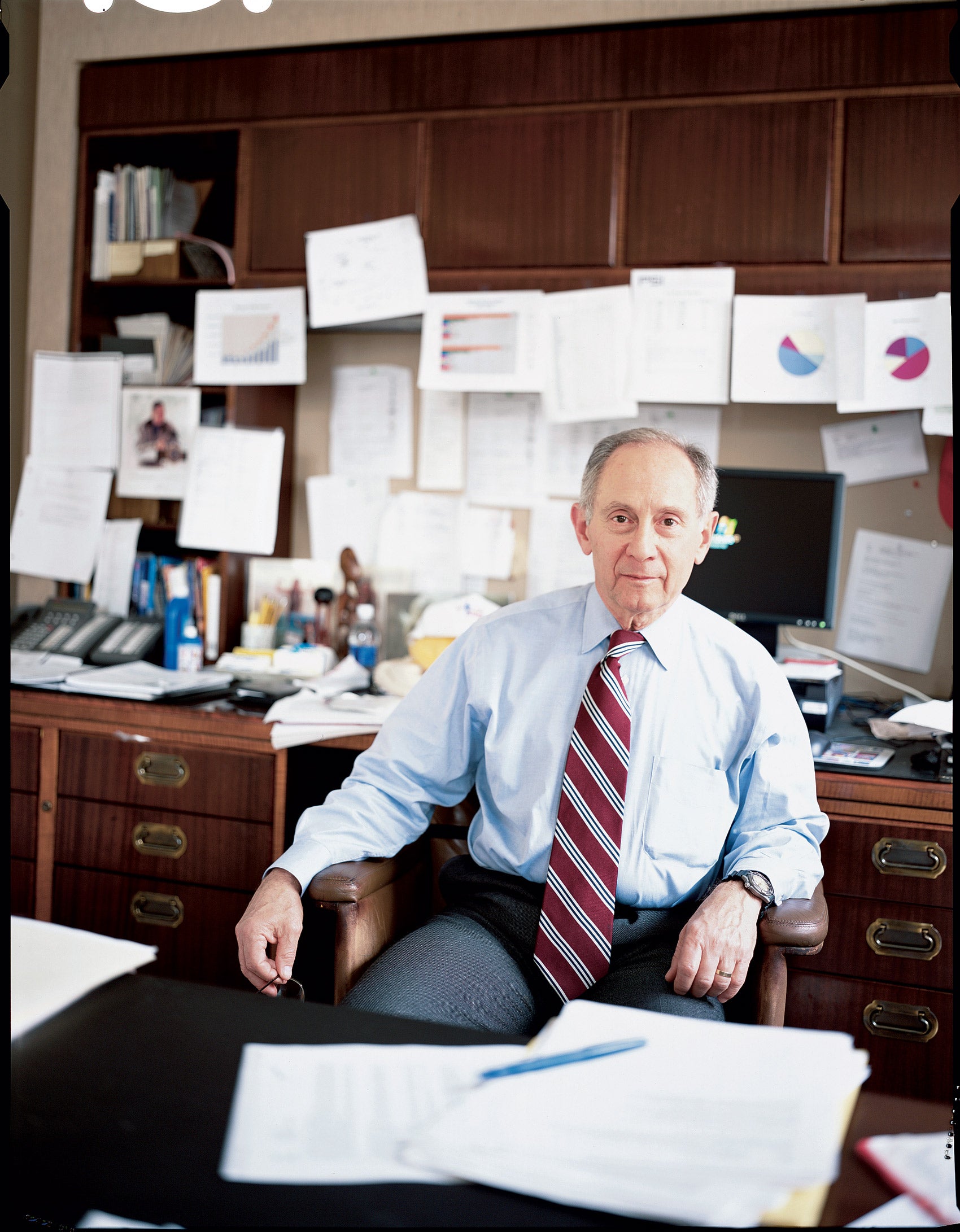Richard Frank ’62 is in business to prevent epidemics
AIDS, malaria and malnutrition claim millions of lives in the developing world every year. One approach to such problems is to provide free health products–condoms, malaria kits and vitamin supplements–to health clinics.
Richard Frank ’62 prefers a different tack: market and sell the items. He runs a nonprofit company in Washington, D.C., Population Services International, that does just that. PSI arranges for such products to be sold cheaply in poor countries because the company has found that selling them has two distinct advantages. First, when people have to pay for products, they are more likely to use them, Frank says. Second, selling items in retail stores allows the goods to reach more people.
“If you limit yourself to the public-sector clinics, you may only get a product out through 200 clinics,” Frank said. “But if you go to the commercial infrastructure, … 10,000 retailers will carry your product.”
Frank’s objective is not to make money. “Indeed, we lose money. Our objective is to give lower-income people the opportunity to have better health.” International agencies, governments and private foundations provide funding for PSI’s projects.
The company neither invents nor manufactures any of the goods that it distributes. Instead, PSI forms partnerships with governments and local businesses–from Kenya to Cambodia–to improve the public’s access to products such as insecticide-treated mosquito nets, and birth control. The company also designs marketing campaigns that are tailored to different cultures and coordinates with local distributors to make products widely available in stores.
PSI’s businesslike strategy focuses on results, and according to Frank, this distinguishes it from hundreds of other nonprofits dedicated to good causes. When it comes to effectiveness, he says, having an appealing mission is not enough.
“It seems to me the question is: Does it [have a] health impact?”
This insistence on doing what works has sometimes generated criticism on Capitol Hill. The Wall Street Journal reported that an aide to Sen. Sam Brownback, R-Kan., characterized a PSI ad campaign for condoms as “obscene” and “oversexualized.”
Frank countered that his approach to public health is in fact “conservative and old-fashioned” in its focus on effectiveness. It’s an approach he attributes in part to his legal training.
“Harvard Law School says: Do it well. If it’s practicing commercial law, do it well. I don’t think that just practicing commercial law, which I once did, is the end-all,” he said. “So we’re doing something else. We’re giving lower-income people in developing countries the opportunity to have good health. Do that well.”
Frank has applied this philosophy not only in private practice but throughout his career. He held senior positions in government: undersecretary of commerce during the Carter administration, administrator of the National Oceanic and Atmospheric Administration and legal adviser for the U.S. State Department. He also served as director of the Center for Law and Social Policy, a nonprofit that focuses on helping low-income individuals.
PSI unites both the government-service and private-sector sides of Frank’s r&eactue;sum&eactue;. The organization coordinates with governments of developing nations and with international agencies like UNICEF, all the while using the marketing strategies of a private company like Procter & Gamble, Frank says.
If the numbers are any indication, PSI’s model is producing results. According to its Web site, the organization estimates that in 2004 its programs prevented 803,000 HIV infections, 6.1 million unintended pregnancies and 83.6 million cases of malaria.
Though the missions and the institutions have changed since he graduated from Harvard Law School, Frank said that his goal remains the same: “Do it well.”
